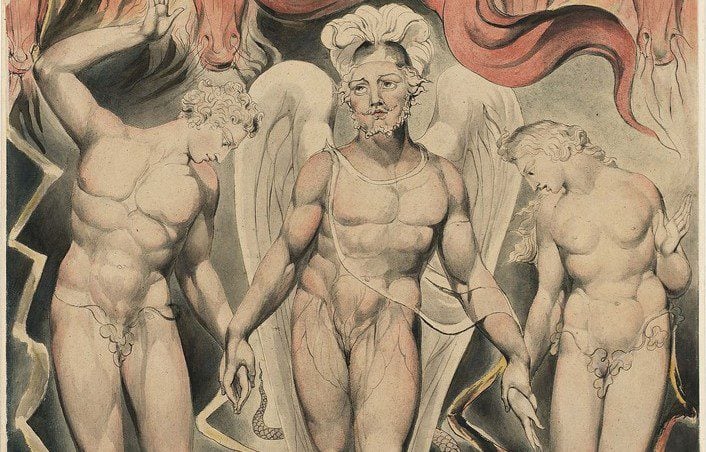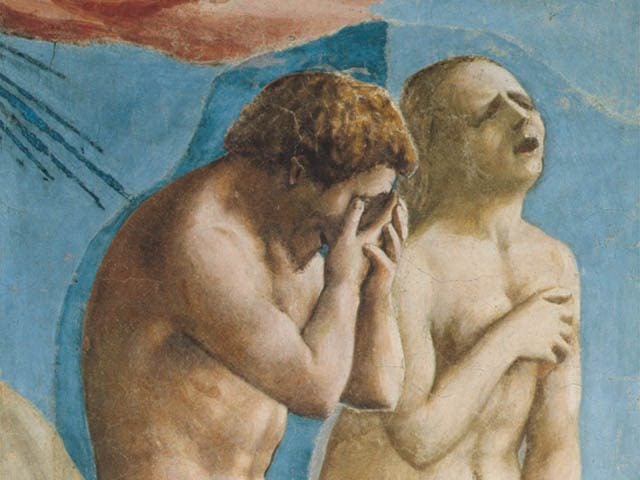I expect the world to go about its regular denigration of women — I just wish members of the Church would stop helping them.
Let’s start with the basics. Women, and I have this on strict authority, are people. As such, they are sexual beings — but not merely.
The problem with our culture is its tendency to view women as merely sexual beings, a fact made painfully obvious by our nation’s general inability to see a breast as anything but an object of sexual arousal.
The problem with out effort to stop objectifying women is, well, we haven’t — we are simply filled with the pleasant feeling of respecting women.
For instance, it is a trend on the Internet’s intellectual tumor, Tumblr, to take offense at the objectification of women into dumb, just-good-for-sex beings, and to respond with things like:

This is a bearable picture. Most of them involve a pair of breasts with glasses on them, or impossibly airbrushed bikini model pondering a math equation on floating pool mattress. This trend — “Smart is the new sexy!” — is the best thing that’s happened to men who objectify women since feminists began calling prostitution “sex-work.” Why? Because now we can reduce women to sexual objects while fighting sexual objectification! We’re feminists, see, we value and respect women for more than just their bodies. Look!

Hopefully the full stupid of the situation is obvious: You cannot fight the problem with the problem. The net result of “ennobling” our view of women by saying their “brains” are objects of sexual arousal is to make women more completely and totally sexualized — to further reduce the number of female characteristics valued for reasons other than their effects on genitalia.
At least in a chauvinistic, sexually-objectified age, a woman tired of being an object of lust could flip the table, go home, put on an ugly-ass sweater, read Sartre, and eat flaming-hot Cheetos until she smells so bad she has to take shower — an offense even unto herself. But in our wannabe feminist culture, reading a book, being a nerd, being smart — even this is “sexy.” And thus even the intellectual life of women, a strenuous activity with its own unique sufferings, joys, and worth — even this is reduced to the value-sphere of carnal desire.

Not it isn’t. And you’re not even reading.

You’re not reading either!

No one in this place is even — you know what, stop sitting on the books and — you know what, forget it.
Anyways, let’s talk about the response of the Church to over-sexualization: This is precisely the same problem with “Christian” phrases like “modest is hottest.” You cannot reassert the virtue of modesty within a framework in which “being hot” is the dominant value. Like the “sexy reader,” the “hot modest woman” is still a sexual object.
This same issue is more subtly present in the Catholic buzz-phrase, “emotional chastity.”
Chastity is the successful integration of the sexuality with the entire person, the freedom to govern the passions of the body and thereby have peace. (CCC 2337) Now insofar as “emotional chastity” refers to the integration of what can be accurately described as bodily, sexual emotions, it’s an alright phrase, I guess.
But — and this is always the result of “Christian” phrases that trend without authority — in my experience, the phrase has mutated itself to refer to any maintenance of female emotions, whether romantic, friendly, distressed — whatever. Against emotionalism, “giving too much” to a man, secret-telling, over-commitment, flirtation, excessive familiarity — against all this and more, we wave the banner of “emotional chastity.”
But by widening the term “chastity” to include things beyond the integration of the sexuality with the entire person, we once again make women into creatures more fundamentally sexual than men. What “emotional chastity” is straining to express is the virtue of prudence, “the virtue that disposes practical reason to discern our true good in every circumstance and to choose the right means of achieving it” (CCC 1806) and that of temperance, which “moderates the attraction of pleasures,” (1809) which, of course, includes the near-voluptuous pleasures of emotionalism and romantic effulgence.
Christian men tell each other to be “honest,” to be “truthful,” to be “prudent” in how we speak with women and “temperate” in the tears of love we indulge. I’d dislocate the kneecap of any man who told me to be “emotionally chaste.” Men can be admonished for our own emotional irresponsibility without referring to our emotions as something fundamentally sexual. But with the hip, new, synthetic virtue of “emotional chastity,” women are taught to refer to a part of themselves that is not necessarily sexual as something fundamentally sexual.

This same trend is seen in the extension of the term modesty to mean any sort of keeping-within — “modesty of the heart,” modesty of dress,” “modesty of speech,” etc. I’ll be the first to say that modesty is about far more than clothes, but it is also not the only keeping-within. This modesty of speech, this constant call to “guard your heart,” this misses the virtue of truthfulness, “the just mean between what ought to be expressed and what ought to be kept secret.” (CCC 2469) If a man is giving too much or too little of what ought to be expressed, we tell him to be truthful, to be honest. We sure as hell don’t tell him to “guard his heart.” Again, women are given a more sexualized version of the clear, defined virtue given to men.
So give the virtues back to women. Right now, men are hoarding them, and women are getting second-class sexual and nuptial metaphors of the same.
But the overall point is this: So far, the Church’s response to our culture’s over-sexualization of women as been to vigorously correct the lies told about female sexuality. The danger is that, though our message is good, we are still in the same mode as our culture — the discussion of women a fundamentally sexual discussion, to the exclusion of other topics proper to the entirety of her person.
If we want to fight the atrocity of our culture’s treatment of women, if we want to transcend the abysmal, boring blues of over-sexualization, we cannot do it by simply over-accentuating the good, healthy sexuality of women, over-asserting “modesty” and “chastity” to make up for the their lack in the world — we must do it by actually speaking of the entire person, who cannot be reduced to her sexuality, for it is precisely the lack of the entire person that makes our culture’s treatment of women so perniciously evil. To speak of female courage and wisdom as much as female purity, of vocation and that particular female capacity for hope as much as chastity, of the uniqueness of the woman’s soul as much as “Catholic dating advice,” that’d be a good start. I think I’ll let Edith Stein begin it:
The soul of woman must therefore be expansive and open to all human beings; it must be quiet so that no small weak flame will be extinguished by stormy winds; warm so as not to benumb fragile buds; clear, so that no vermin will settle in dark corners and recesses; self-contained, so that no invasions from without can imperil the inner life; empty of self, in order that extraneous life may have room in it; finally, mistress of itself and also of its body, so that the entire person is readily at the disposal of every call.














